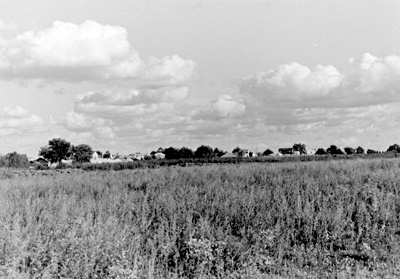All Nonfiction
- Bullying
- Books
- Academic
- Author Interviews
- Celebrity interviews
- College Articles
- College Essays
- Educator of the Year
- Heroes
- Interviews
- Memoir
- Personal Experience
- Sports
- Travel & Culture
All Opinions
- Bullying
- Current Events / Politics
- Discrimination
- Drugs / Alcohol / Smoking
- Entertainment / Celebrities
- Environment
- Love / Relationships
- Movies / Music / TV
- Pop Culture / Trends
- School / College
- Social Issues / Civics
- Spirituality / Religion
- Sports / Hobbies
All Hot Topics
- Bullying
- Community Service
- Environment
- Health
- Letters to the Editor
- Pride & Prejudice
- What Matters
- Back
Summer Guide
- Program Links
- Program Reviews
- Back
College Guide
- College Links
- College Reviews
- College Essays
- College Articles
- Back
Country Boy, City Boy MAG
Throughout their lives, people accumulate experienceswhich shape them. These experiences lead many to hold contrasting views and topractice disparate ideologies. Differences can be healthy; people can learn fromeach other in spite of their differences. A major change in my life blessed mewith the knowledge and understanding of two vastly dissimilar subcultures ofAmerica.
It is necessary to distinguish be-tween the two drasticallydifferent lives I have led. During my "first life" - my country life -I encountered the most trusting, responsible, hard-working men I have ever known.
I was born and raised a farm boy in Central Illinois in a ruralcommunity. My family and I lived on a large family farm of about 120 acres wherewe grew corn, beans, wheat and more corn. Our closest neighbors and friends weremy cousins, aunt, uncle and grandparents. Since they lived only a mile away, wesaw them every day. Everyone shared common bonds in the country; we all dependedon the weather and on each other, and were God-fearing individuals.
Lifewas slow and predictable. It was a quaint lifestyle, now that I look back on it.We lived right off Rural Route One in a house that had been passed down from onegeneration to the next, like most in that part of Illinois. Our hundred-year-oldhome had been remodeled many times and was still in shambles. After we moved, itwas torn down to make room for more farm land.
There were peculiaritiesthat some may find hard to understand. The ties that bound the country folktogether were just one distinction. In our town of 100 (if you counted all thecats and dogs), everyone knew everyone. If Jim and Sue went out on a date, notonly did everyone know about it, they also knew how Jim treated Sue. There was aninherent responsibility and trust in this rural milieu, and consequently, one washeld accountable for every action.
There was a silent trust betweenpeople. For example, sometimes tools - items of great importance to a farmer -would be missing. When I would report their absence to my grandfather, he thoughtnothing of it because he had told many of our neighbors to simply take what theyneeded. Sure enough, the tools would be back in their places in a few days.
Along with this trust was the faith in and dependence on the extendedfamily. Few people understand how close and important this can be. My cousins andsister were my best friends. I grew up in an atmosphere where family and friendswere the same people. This background has influenced the way I trust and care formy friends as if they were family. This is how it was done in the country.
My kindergarten class had six students, all boys. We trusted each otherand thought of each other as family, not merely friends. This was simply how wewere raised. This indelible view of relationships has brought me joy, especiallyafter we left the farm.
When my family moved to Houston, I began my"second life" - my city life. Because of my father's career, wetraveled to this land of opportunity. The transition was definitely a cultureshock. In the apartment complex where we lived until our house was built, we werethe only Caucasian family. That was new; in the country, everyone was white. Igradually became accustomed to the accents of my new friends and learned abouttheir religions and languages.
When summer ended and school started, thenew world I lived in taught me more about people. My teacher was black, and oneof the best teachers I've ever had. She taught us how different culturescelebrate holidays, including Kwanzaa, which I had never heard of. I wasintrigued, and realized how ignorant I was of other cultures. Indeed, my firstfew years in Houston were a cultural enlightenment.
Not all I learned wasgood, though. Violence, cursing, stealing, drug abuse and other behaviors thatwere rare in the country were prominent. At first it shocked me, but I soon grewaccustomed to it and eventually learned to tolerate it. This acceptance ofdifferences was one of the many things city life gradually taught me.
Thetransition in my life continually reveals to me how naive my old views were.While once I had aspirations of becoming a farmer, the move to the city convincedme that perhaps I should strive for more. My parents have risked much and givenup more to allow their children greater opportunities to succeed.
Livingin such two distinct cultures has helped me discover that change is necessary andimportant in developing unprovincial views on life. By incorporating positiveattributes from each culture and learning from them, I have developed a solidvalue system that will help me survive adversities. My knowledge of theselife-styles provides me with a unique view on life which will, I hope, enable meto further understand other cultures.

Similar Articles
JOIN THE DISCUSSION
This article has 1 comment.

0 articles 0 photos 12292 comments